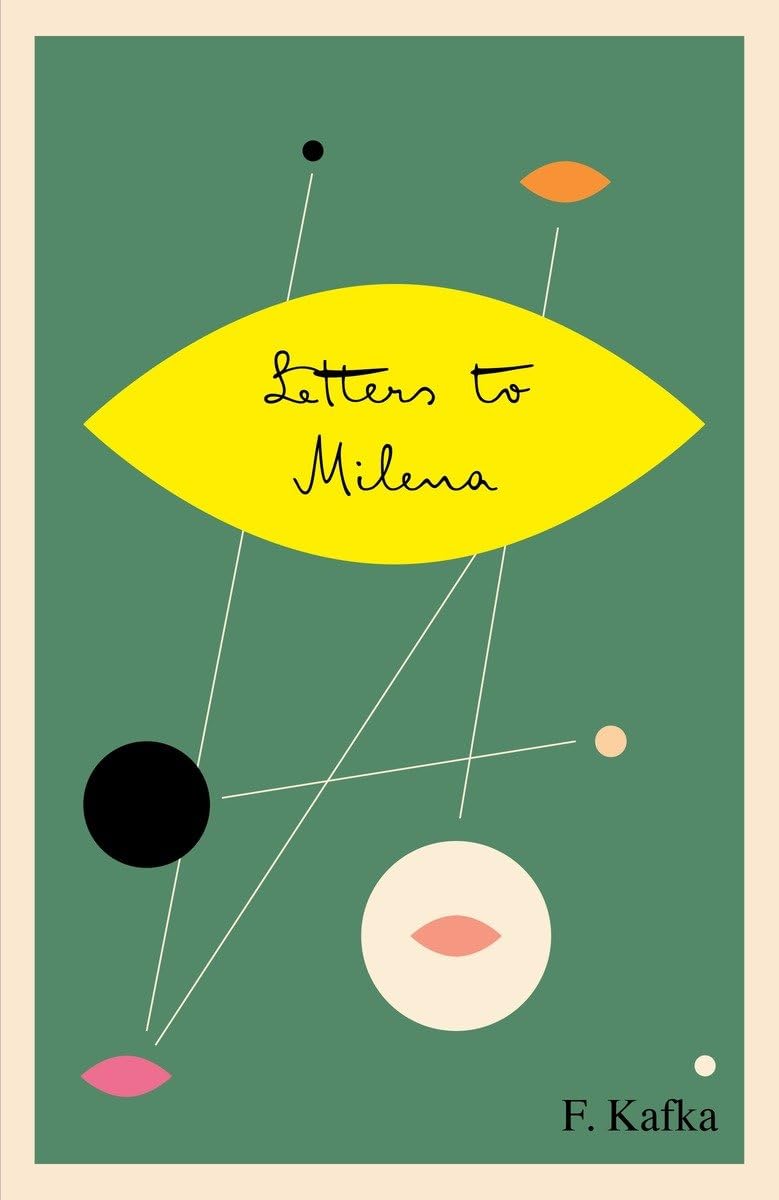All Categories


Letters to Milena (The Schocken Kafka Library)
Share Tweet
Get it between 2024-05-14 to 2024-05-21. Additional 3 business days for provincial shipping.
*Price and Stocks may change without prior notice
*Packaging of actual item may differ from photo shown
- Electrical items MAY be 110 volts.
- 7 Day Return Policy
- All products are genuine and original
- Cash On Delivery/Cash Upon Pickup Available








Letters to Milena Features
-
Schocken Books Inc
About Letters To Milena
Product Description The passionate but doomed epistolary love affair between a Czech translator and one of the greatest writers of the twentieth century, the author of The Metamorphosis and The Trial. "Extraordinary…touching, horrifying, brilliant, sickly, [and] heartbreaking…. The most significant key we have for a reading of the author's novels and short stories." —The New York Times In no other work does Franz Kafka reveal himself as in Letters to Milena, which begins as a business correspondence but soon develops into an epistolary love affair. Kafka's Czech translator, Milena Jesenská, was a gifted and charismatic twenty-three-year-old who was uniquely able to recognize Kafka's complex genius and his even more complex character. For thirty-six-year-old Kafka, she was "a living fire, such as I have never seen." It was to Milena that he revealed his most intimate self and, eventually, entrusted his diaries for safekeeping. Review "The voice of Kafka in Letters to Milena is more personal, more pure, and more painful than in his fiction: a testimony to human existence and to our eternal wait for the impossible. [This is] a marvelous new edition of a classic text." —Jan Kott "An extraordinary document—touching, horrifying, brilliant, sickly, heartbreaking, and infinitely convoluted . . . It reveals him most clearly (which is relative, and Kafka remains mystifying enough), and it is—aside from the beauty of the letters themselves—the most significant key we have for a reading of the author's novels and short stories." —The New York Times About the Author FRANZ KAFKA was born in Prague in 1883 and died of tuberculosis in a sanatorium near Vienna in 1924. After earning a law degree in 1906, he worked for most of his adult life at the Worker's Accident Insurance Institute in Prague. Only a small portion of Kafka's writings were published during his lifetime. He left instructions for his friend and literary executor Max Brod to destroy all of his unpublished work after his death, instructions Brod famously ignored. Excerpt. © Reprinted by permission. All rights reserved. [April 1920] Meran-Untermais, Pension Ottoburg Dear Frau Milena The rain which has been going on for two days and one night has just now stopped, of course probably only temporarily, but nonetheless an event worth celebrating, which I am doing by writing to you. Incidentally the rain itself was bearable; after all, it is a foreign country here, admittedly only slightly foreign, but it does the heart good. If my impression was correct (evidently the memory of one single meeting, brief and half-silent, is not to be exhausted), you were also enjoying Vienna as a foreign city, although later circumstances may have diminished this enjoyment, but do you also enjoy foreignness for its own sake? (Which might be a bad sign by the way, a sign that such enjoyment should not exist.) I’m living quite well here, the mortal body could hardly stand more care, the balcony outside my room is sunk into a garden, overgrown and covered with blooming bushes (the vegetation here is strange; in weather cold enough to make the puddles freeze in Prague, blossoms are slowly unfolding before my balcony), moreover this garden receives full sun (or full cloud, as it has for al- most a week)—lizards and birds, unlikely couples, come visit me: I would very much like to share Meran with you, recently you wrote about not being able to breathe, that image and its meaning are very close to one another and here both would find a little relief. With cordial greetings, F Kafka *** [April 1920] Meran-Untermais, Pension Ottoburg Dear Frau Milena I wrote you a note from Prague and then from Meran. I have not received any answer. It so happens the notes did not require a particularly prompt reply and if your silence is nothing more than a sign of relative well-being, which often expresses itself in an aversion to writing, then I am completely satisfied. However, it is also possible—and this



















